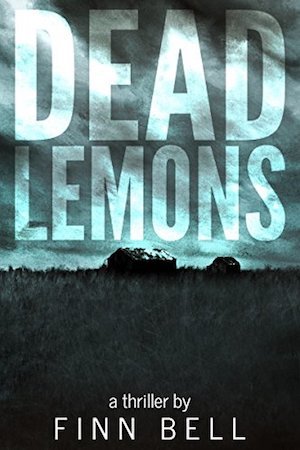
Finn Bell, the character that is, has moved to Riverton at the southernmost tip of the island. He is escaping his old life of alcoholism and leaving a broken marriage in his wake. He crashed his car while drunk and his back is held together with metalwork. His legs are paralysed and he now needs a wheelchair. He is just about clinging onto sobriety but one of his first actions on arriving is to buy a gun. Riverton is a tiny harbour community, the ‘last town down’. It’s an apt metaphor for Finn’s mental and physical state.
Finn moves into a small windblown cottage that was home to a family before the daughter, Alice, disappeared in mysterious circumstances. Finn soon finds out that the father also disappeared and both are gone with barely a trace other than a single macabre remnant. Alice is presumed murdered and the three disquieting Zoyl brothers on the neighbouring farm are the main suspects, but no-one can find any definitive evidence that links them to the crime. Finn can’t help but get pulled into the mystery, an itch he has to scratch, offering him redemption.
Told in the first person the story opens in the present day. We find Finn hanging off a cliff from his wheelchair with the pressing problem of Darrell Zoyl hellbent on killing him. We then flick between this drama and Finn’s arrival in the area five months previously. The narrative seesaws between the two as our hero struggles to unearth the secrets while his life is threatened.
The remote setting exudes character and the local history of the region will pull you right in; the legacy of whaling and a gold rush, the Māori heritage, and the comforting embrace of a small community life. Finn plays wheelchair rugby, known as murder ball, and finds solace in new relationships yet he can’t settle and it is clear that someone won’t give him peace either.
Finn, for all his flaws, is likeable and the other characters are distinct, well drawn and appealing. There are passages, inevitably, when the main character is so psychologically and physically scarred, where the narrative lingers on Finn’s internal struggles but they don’t derail the story. In part this is undeniably eased by Betty Crow, Finn’s elderly therapist, who is a stand out character. Her philosophy on dead lemons gives the book its title. In nature, she explains, the lemons die out but in humans the dead lemons cause years of pain and suffering to themselves and those around them.
The pace of the writing adds to the portrayal of Finn’s mental state. The sentences can be short and choppy with forced paragraph breaks, replicating the thought processes of a man wrestling with his demons. You’re left to fill in the blanks and that might not be to your taste, but after some mild initial disorientation I found it immersive. There is always a risk that a novel told largely in flashbacks will suck out the suspense rather than build it, but the author deftly handles the threads. There is the merest hint of deus ex machina to the denouement but the final unravelling of the story does reveal all and what could have been considered local colour is subtle foreshadowing.
Finn Bell is a talented writer and he has constructed a compelling and accomplished story that doesn’t wallow or stall. Bell has published another, Pancake Money, focusing on the policeman Ress who also appears in Dead Lemons. It is likely that you’ll get straight into it after this one. This slice of Kiwi noir is very moreish. Bell is a welcome arrival – enjoy this now and he is one to watch in the future.
We featured Dead Lemons in one of our Ten to Taste articles, focusing on self-published novels, in New Talent November.
Self-published
Kindle
£2.31
CFL Rating: 4 Stars